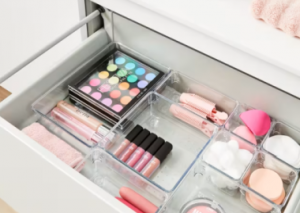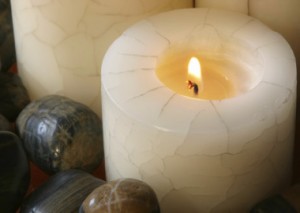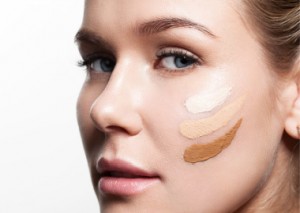
By BR Kellie
You wouldn’t think it would be possible to miss a 6”2 glamazon wearing a beautifully cut suit, a gorgeous head of perfectly highlighted hair, and the most beautiful shade of lipstick ever. But somehow I did. And so it was with phone glued to ear I looked up into the open and friendly smile of Briar, the woman I was to interview about her life changing, eye opening and at times, tears inducing experience of transitioning from a man to a woman.
So how does her story start? Who best to explain than Briar herself?
****
When you’re really really young you know you’re different, everybody used to be Superman and Batman and I always wanted to be Wonder Woman, and all my best friends were girls. And then I went through the testosterone years and of course all of that gets oppressed. I met my partner when I was 18, still in the testosterone years, but you sort of come out of those knowing you’re a little bit different.
What triggered your desire to become Briar?
 There’s always something, a life-changing thing, something that makes you stop and re-evaluate your life, and usually it’s a big emotional experience of some description. I had a break down, a massive breakdown, and it was mostly to do with gender identity, and I genuinely considered suicide as a last resort at 43. At that point I didn’t know what to do. I’d look in the mirror and think ‘why has God put me in this body’ and all this kind of thing, and it just went on and on and on to a point where you can’t talk to anybody about it, you feel you’re trapped in this zone.
There’s always something, a life-changing thing, something that makes you stop and re-evaluate your life, and usually it’s a big emotional experience of some description. I had a break down, a massive breakdown, and it was mostly to do with gender identity, and I genuinely considered suicide as a last resort at 43. At that point I didn’t know what to do. I’d look in the mirror and think ‘why has God put me in this body’ and all this kind of thing, and it just went on and on and on to a point where you can’t talk to anybody about it, you feel you’re trapped in this zone.
Things just got to a head where it felt like me against the world and the world was winning, and you just get further and further down in the dumps and there’s nothing you can do and I fell apart. I was given three weeks off work for chronic depression and stress and my councellor by pure luck dealt with depression and anxiety and lack of self worth, which is what I had, but she also specialized in gender identity. At that point I knew that I was different but my councellor pretty well said ‘you’ve got to change or you won’t be on the planet much longer’.
During your transition you were working in your current job with a cable company and as an RPM instructor at Les Mills. Was it hard to transition at work? What steps had to be taken?
I work in the cable industry selling power cables, which is a pretty blokey kind of area, and the boys, there was a bit of trepidation initially, but they’re getting over it. And I believe if you know your product, you know who you are, you’re strong in your beliefs and you wear your heart on your sleeve – and I think that’s the biggest thing – people have to see your heart, they have to see your soul and if they can see that then you’re always going to get support. However it did involve compromise, with both my job in the cable industry and at Les Mills.
Les Mills’ Group Fitness Centre Manager, Giles, who is more new school, had the view of ‘if it’s the right thing to do it’s the right thing to do’. He’s one of the most amazing people I’ve ever met and together we pushed it. It’s the way you deal with it, the way a group of people will get together to fix a common problem, which is what they did. I still taught as Brian up to the facial surgery, which was September last year, than I started teaching as Briar. The numbers held up and weren’t affected. Wednesday was still the number one class in Takapuna. As far as we know I was the only transgender Les Mills instructor in the Southern Hemisphere. With Les Mills you go up there twice a week and you put your heart on your sleeve and it was a big thing for me, it did save my life, it helped me out a lot and I’m quite indebted to Les Mills for the time I was there.
Because you’re different, you have to try that much harder than anybody else to be accepted. At that time it wore me down and I think that was one of the reasons why I called it a day at Les Mills because at the end of the day you need your privacy back a little bit. They’re amazing amazing people, but when you’re always on display you start running out of that give, and I love to give and I’m involved in so much stuff and I’ll do anything for my friends, anything for anybody, but what I found is that sometimes there’s nothing wrong with being a little bit selfish.
Some would say that transitioning could be seen as being selfish…
Well it can be seen to be that, and I say that because inherently it’s all about you. But you can’t be selfish because it affects so many people around you. It’s not a ‘self’ thing, it’s not a me thing – it’s about interacting with others. It’s not jumping out of a box and thinking everyone has got to accept me for me, it doesn’t work like that. A lot of people transitioning, I believe, don’t understand that their actions affect others and even though I’m changing, people around me haven’t, and I still need to accommodate that and I still need to help people to understand as to why I’ve changed. So there’s a certain amount of, I believe, responsibility for transgender people to put a good foot forward. It’s not very often that you interact with a transgender person and if that interaction is good then the wider community won’t hold anything against us, because we’re not that common.
What does transitioning from a man to a woman involve initially?
I went through the pre-stage for about 10 years, and it was really horrible. The hardest part was going through the phase where you’re trying to experiment with who you are and you’re not full time and you’re starting to look a little different and people are starting to ask questions. When I was part time transgender I was reasonably passable and people didn’t bother too much about it, and there are support networks there.
Once the decision was made it became a little bit easier because it was like ‘whatever the consequences are we’re doing this’. Up to that point it’s a do I or don’t I, but once you’ve made that decision and get on with making it roll I think that suddenly becomes a bit of a burden lifted and then you start making plans and talking to the right people to make it work.
After making that decision to go fulltime, what physical steps did you have to make along the way?
 I’ve been on HRT – Hormone Replacement Therapy - for four years. Basically what it does firstly is to kill testosterone, it’s all about feminizing effects. So you’re decreasing your testosterone and increasing your estrogen. It’s the reverse of what goes on in a normal male. There are various ways you can do it. I have a monthly injection and it takes your testosterone to absolutely zero, then whatever estrogen you’ve got, be it either introduced through a pill or your natural estrogen levels, goes through the roof. You’re always tweaking the regime.
I’ve been on HRT – Hormone Replacement Therapy - for four years. Basically what it does firstly is to kill testosterone, it’s all about feminizing effects. So you’re decreasing your testosterone and increasing your estrogen. It’s the reverse of what goes on in a normal male. There are various ways you can do it. I have a monthly injection and it takes your testosterone to absolutely zero, then whatever estrogen you’ve got, be it either introduced through a pill or your natural estrogen levels, goes through the roof. You’re always tweaking the regime.
What it does do from male to female is eliminates your hair fallout, you grow a certain amount of breast tissue, you get fat redistribution so it goes from around the waist to your hips and bum. Your skin softens, you don’t sweat as much, you don’t get that musky salty male sweatiness, it all goes. It changes how you think.
A lot of transgender people say it changes how you think towards men, whether you find them attractive or not, but it hasn’t done that with me. It’s made me more emotional, so if I see a puppy on tv I’m crying ‘til the cows come home. It takes a lot to adjust to that, which is why I think that before you go down that road you’ve got to have the conviction that it’s the right thing to do. I believe you can’t experiment with it because it will mess with you. Occasionally I get depression, I’m more prone to depression then I was, but you’ve got to be able to say ‘nah, it’s not me personally it’s the hormones doing it, nah we’re ok.’ The biggest thing for me is something small can get into your mind and it will fester and grow and grow and grow until it’s all consuming, whereas a boy’s like ‘stuff it’ – and that’s the biggest difference I’ve found. So you have to grow into the new mind set.
Tell me about the facial surgery…
I had facial feminization surgery, so that was essentially surgery at bone level, resculpting your face. They bring the skin at the top of the forehead forward, cut out the middle part of the forehead bone, add titanium plates and set it back so you lose the masculine look between the brows. Drop the hairline, brow and upper eyelid lift. They went through the chin and cut the chin off completely, pulled it back and screwed it back again, then went through the mouth and reshaped the jaw to make it round. Then they took fat through the backside and hips and put it in lips and cheeks, smile lines and into the temple area.
That was all done in Auckland, and it was better in Auckland price-wise as well. It worked really well and I was so happy with the outcome. One of the surgeons who did my face did my breast augmentation as well, which was two months ago.
Transition was hellishly expensive, costs tens of thousands of dollars, but that investment is in you. It hurt, and I was out of action for about three weeks, but it was worth it.
There are different levels of how far transgender people can go. I don’t believe in gender reassignment surgery, I don’t believe in the whole chop. So you get pre-op or post-op and I’ve got so many friends who are post-op and who’ve had everything done, and I don’t believe in that, it’s just a personal thing, I’ve gone as far as I’m going to go, and I’m at peace with that and I love it, it’s just me. So now it’s really a case of just getting on with life.
There’s so much pressure on women to look good. Do you feel it?
Absolutely!!!!! One of the things I’ve noticed is that to be passable – figure wise – you’ve got to keep the weight off so I spend a lot of time at the gym because I have to, and because I love it.
I’m always clothes shopping and makeup shopping and you know there’s the greys - ‘I’ve got to do my hair again, oh my god’. I’ve got 50 something pairs of heels, I’ve got a wardrobe full of work clothes, a wardrobe full of casual clothes, and I’ve invaded the downstairs wardrobe in our flat. My partner has one wardrobe and my clothing is starting to invade that.
When I was going through the horrible half and half phase – before facial surgery – you still look a bit male but you can hide it with makeup, the routine would take me one and a half to two hours and it was a long time, where as it now takes me half an hour, so I’ve got it down pat. There are times when you wake up and think ‘oh no not this routine again’ and then you roll with it. My biggest problem would be wondering what I’m going to wear to work – that can take up to 20 minutes.
But you do feel that pressure to look good, you feel it a lot. You’re more consciously aware of your appearance, but I don’t believe you should take that away from who you are and it’s more of a case of understanding that the outside is there for a face value, but the inside of you is your soul, and your soul is everything, and if that’s right then nothing else matters.
How has your transition affected your partner?
 “I’ve been with my partner for 30 years, we’re engaged. She told me she had an inkling there was something a little bit different, so I don’t know how we ended up together but we did and it’s been really cool. She’s an amazing person, she’s as supportive as she can be given the circumstances, and even though our families don’t quite get it - and you’ve got to appreciate that, you’ve got to accept there’s always fallout - there’s always going to be somebody in your life you’re going to lose because it’s such a massive change, and I guess you’ve got to be prepared for it. But she’s been absolutely amazing. Things like the facial surgery, which was September last year, that was massive, she took it in her stride, she was just there. The boob job, that was two months ago and again she took it in her stride. It’s been really really cool and things just worked, but again, its about trust and support from both sides. I try not to make too much reference to it when we’re talking about things, and she’s ok about it.
“I’ve been with my partner for 30 years, we’re engaged. She told me she had an inkling there was something a little bit different, so I don’t know how we ended up together but we did and it’s been really cool. She’s an amazing person, she’s as supportive as she can be given the circumstances, and even though our families don’t quite get it - and you’ve got to appreciate that, you’ve got to accept there’s always fallout - there’s always going to be somebody in your life you’re going to lose because it’s such a massive change, and I guess you’ve got to be prepared for it. But she’s been absolutely amazing. Things like the facial surgery, which was September last year, that was massive, she took it in her stride, she was just there. The boob job, that was two months ago and again she took it in her stride. It’s been really really cool and things just worked, but again, its about trust and support from both sides. I try not to make too much reference to it when we’re talking about things, and she’s ok about it.
Sometimes I have a bit of a guilt complex because if she did want kids or if she wanted a genuine male/female relationship then at our ages it could be argued that she’s being denied that, so I feel bad. And I carry that. But then again I’ve always said to her that she never bought into any of this and if she feels the need to leave she’s got to go and I completely understand that. That being said, I’m totally loyal to her, I love her to bits, I’d never cheat behind her back, I view commitment really really highly and I try to live really ethically and I probably look out for others far more than I look out for myself, so when it came down to the transitional side I think it was just a level that just evolved.
How have the rest of your family handled the change?
My family is a bit of a mish mash. My mum died of cancer when she was 64, that was 6 years ago. The thing is, she knew. I was much closer to my Dad when I was helping building boats, plumbing, doing electrical work etc. But to go to this – he can’t take it. We might hold a civil conversation, but essentially I ended up going ‘I’ve tried, I love you to bits, but my life is for me it’s not about what you think’.
I can understand why people have an issue with it, why Dad had an issue with it, I mean going from basically doing everything with him and building engines to this… I think what happens sometimes is that you overcompensate. Looking for more masculine things to compensate for who you are inside. And maybe to me there was a little bit of that, but at the end of the day you’re always going to revert back to who you are. I get why my parents couldn’t handle it, although Mum was totally on my side, which I only found out after she died and that was part of the reason why I went through the breakdown. Somebody very close to my mum actually told me the whole story and I just broke down and cried and cried, I couldn’t stop crying. It was almost like I got Mum’s approval and that was a game changer. But with Dad there’s nothing you can do, if they come around that’s great, but you can’t force this on anybody, it’s like I said you’re always going to have fall out, you’re always going to have casualties of war.
My brother had problems with it too, but now he’s fine, now we’re closer than we’ve ever been. It’s funny how something that pushes you apart actually draws you closer together, again it’s when your hearts on your sleeve they can see it’s a genuine person, people can accept that. If you allow people to take your heart and hold it, they’ll hold it. If you don’t give them your heart …
Have your friendships changed? If so, how?
 I’ve got a lot of older friends who’ve been there but I’ve had some really amazing friends enter my life over the last couple of years, they’ve really helped and they don’t even know they’ve helped.
I’ve got a lot of older friends who’ve been there but I’ve had some really amazing friends enter my life over the last couple of years, they’ve really helped and they don’t even know they’ve helped.
You still get the scenario of people not understanding but at the end of the day you’ve just got to put yourself out there and hope that people do get it and if they don’t get it as long as they accept you.
Essentially as a transgender person you as a person haven’t changed that much. Your hair’s longer, you think a little differently, but essentially what’s different in the human body? If you can’t appreciate anybody at face value then they’re probably not worth having in your life. At some stage when you’re going down the transitioning road you work out very quickly who your friends are, and the ones who aren’t you clear them out and you surround yourself with really good people and you’ll go a long long way. I’ve been lucky I’ve got some really cool friends around.
So what if you are wanting to know more about transitioning, or you know someone who may need to be pointed in the right direction?
The really cool thing now is that with New Zealand being so much more socially aware it’s easier for us to transition. There are a lot of therapists and psychologists who are trained in gender identity. There are a lot of online places, and support groups within Auckland. Agender and Genderbridge, have monthly support meetings. There’s a lot of councellor support too. There are helplines as well. There are facebook groups, and groups for significant others as well. At the end of the day, you’ve got the support level there. It’s much easier for young people to transition than us older ones, but it still comes down to you being strong enough to take the world on, but safe in the knowledge that the support is there. You’re the one who has to do the hard yards and I think it’s a case getting your close relatives, your family onside, it makes it a lot easier. The internet, and also Caitlyn Jenner have brought an awareness that this exists and that’s made our lives easier.
What advice would you give to someone who is at the beginning of their journey?
Don’t waste another day, if that’s who you are, even if you’ve an inkling of it, talk to somebody, reach out, start looking around, start the process, start finding out. If it’s not you at least you’ve gone down the road and investigated, you know ‘I’m not transgender, its something else, or I’m not this and at least I know I’m that’. But the thing is you’ve done it.
The worst thing you can do is not do a damn thing and this is the difficult thing about it, people will procrastinate, because they’re scared of talking to people or they’re scared of working out what’s going on and you can’t, you don’t have time on your side. The best thing you can do it take it on and once you’ve worked out who you are be determined and drive through it, all the way. That journey is very bloody hard and it’s absolutely worth it.
When you’re transitioning you need to be realistic. To look genuinely female is very difficult for a transgender person, male to female, to do, especially if we are transitioning in our older years. So I guess you’ve got to find your position, your place in the world. If your loved ones don’t get it try and help them to understand, in a nice way, because you want their support.
For me personally, when you’re getting respect from being who you genuinely are, you’re trying your very best to fit in, you’re busting your backside and your heart’s on your sleeve, you’re going to get the support. I think if you bring any form of bringing people down, any groups, anything like that you probably deserve to get a bit of ridicule. But if you’re genuine in what you’re doing and you’re genuinely going to go down that road the support structures are there, people are going to stand by you and support you and help you on your way. It’s still up to you, but you’ve got a support network there and support networks are critical. Thankfully there are some amazing transgender role models in society, and several are even in New Zealand, Georgina Beyer being a classic example.
I think one of the reasons why I push as hard as I do is also to show the world “Hey you’re different” but you can actually make it, and if one person only sees that you can get on with your life, you can be a normal person, and you can put your heart out there and you can be proud of yourself – if one person sees that – I’m happy. Because it’s a hard enough road out there and I feel so sorry for the ones whose parents don’t get it and don’t understand and that person feels isolated and alienated and the structure isn’t there. And if you don’t have that structure you could end up spiralling downward out of control feeling the world is against you, and yet if you have that support network there you can go a long way and you can be you.
How can you help a friend or family member if they’re going down that road?
 Understanding. Listening. Just being there. Don’t close the door. If somebody thinks that they’re born in a different body, that they relate to being different, the very least you can do as a family member or a close friend is to help that person find themselves, even if that means you find the psychologist and get them in front of it. Help them do background work. The biggest thing is to show that you care. Transgender suicide rates are through the roof, as with anyone who is gay or lesbian. All they need to know is that there’s a hand there, that someone is stretching their hand out saying ‘hey I’m here for you, I don’t know what you’re going through but I’m going to stick by you no matter what happens.’ You know what, that is the biggest thing that people can ask for.
Understanding. Listening. Just being there. Don’t close the door. If somebody thinks that they’re born in a different body, that they relate to being different, the very least you can do as a family member or a close friend is to help that person find themselves, even if that means you find the psychologist and get them in front of it. Help them do background work. The biggest thing is to show that you care. Transgender suicide rates are through the roof, as with anyone who is gay or lesbian. All they need to know is that there’s a hand there, that someone is stretching their hand out saying ‘hey I’m here for you, I don’t know what you’re going through but I’m going to stick by you no matter what happens.’ You know what, that is the biggest thing that people can ask for.
I’ve know a few who’ve committed suicide, I know of a lot of friends who did do it tough, and I guess for me I’m just really – the planets kind of lined up a little bit on my side, I was really lucky, so much could have gone wrong. I could have had customers who wouldn’t accept it who’d put pressure on my employer, I could have had Les Mills saying no, I could have had my partner not hanging around, any number of things could’ve gone wrong but nothing went wrong, everything went right so I was very lucky.
How do you feel about Caitlyn Jenner and her coming out?
The reality is that being transgender will come out, it will grow arms and legs. What scares me about being transgender is that it’s not seen to be a fad, but that there are real people who are this way. At the moment there’s a lot of airtime on it – Caitlyn Jenner has transitioned, more and more people are coming out, I’d hate to think people would jump to conclusions for the wrong reason, it’s a genuine thing and it scares me that people would think it’s a new age thing or a fad or something like that and treat it as such when it’s not. It’s a genuine clinical disorder, it’s proven, and it’s a life-changing event. You don’t go through 60 grands worth of surgery and put your heart on the line and lose half your family if it’s a fad. And what scares me is that it could be seen as that, not for me personally because everybody knows it’s way beyond that. But if it’s genuinely who you are and you’ve sort the advice and you’ve got people, get on with life and make it happen. Don’t hold back because one thing I know is that if I had any chance to do it a day earlier I would have and I transitioned fulltime at age 43 and if I could turn the clock back, in a heartbeat I would.
Looking back on your journey, what are your thoughts?
So now I look at it, with all being said and done, there’s actually something really empowering about the process. I used to be ‘I was different and I hated myself’ now it’s a case of I’m different and I’m unique and I’m really proud of myself.
I think if people coming out, starting to come out, could realize that you get to a stage where it is a really positive thing to be you and it is worth that journey…. That journey is worth … I just can’t say it … but there’s nothing better than looking in the mirror and seeing your soul reflected in a mirror. It’s when you feel like you’re female on the inside and you see a guy looking at you, you hate yourself. But you must be prepared to fight for yourself, who you are, and what you believe in, ESPECIALLY during the transitioning process. It’s definitely not an easy process for many.
But when everything’s right and who you are matches who you are on the outside there’s this real feeling of inner peace. Like you feel that enjoyment, you feel like you’re taking back control of life again. And all the hardships and all the trepidations and all the heartache and all the despair and all the crying and all the beating yourself up, you know, it’s … it is worth every every minute of it. If you’re going to go down that road believe in it and own it and you’ll never look back.

****
Throughout our conversation Briar kept trying to convince me that she didn’t have a story to tell, that her life was boring, she was saying that even at the very end as we said our goodbyes, but I’m sure you’ll agree she’s an amazing, strong woman, and an inspiration to those around her, and not only to anyone beginning their journey of transition, but to all of us – showing that courage, heart, determination and the love and support of those around you can help achieve your dreams.
Thank you, Briar, for sharing your story with me, it was truly an honour.
Throughout Briar’s journey she enjoyed immense support from Les Mills Takapuna, where she was, and is about to become again, an RPM instructor. We spoke to Giles Bryant, the Group Fitness Centre Manager, about his involvement and how Les Mills were happy to work with Briar to accommodate her transition.
When Brian first came to you to tell you he wanted to teach as Briar, what was your reaction?
Briar had always been very open about her choices and plans from the outset while teaching RPM for us. She was clear about her intentions and for that reason we were able to make plans at each stage of the journey to ensure the process was seamless for both Briar and our members. It was important to us that Briar was treated the same as any other Group Fitness Instructor. In fact Briar was quite insistent that she be treated the same, so if there had been a drop or lack of performance during or after the shift to Briar, we would have dealt with this the same as any other GFI. The good news is that Briar was as, if not more popular, than Brian!
Did you expect any fall out or were you confident members would take it in their stride?
I was pretty confident that our club members and the greater community were capable of celebrating diversity in all of its forms and I was proud to endorse Briar as a talented team member. As a business we did have a duty of care for Briar so we ensured there was strong communication with her, and made it clear to her that she was to come to us if she endured any issues and that she would be supported.
Did Les Mills have to go through a process to accommodate the change?
Yes and this was one of the more exciting parts of having Briar on the team. As a business Les Mills had not yet created a specific transgender policy prior to Briar’s change. While we did have more general policies in place, we saw this as an opportunity to work with Briar and create a new policy and template for others to follow in the future. Our People and Performance Manager, Marilyn Manning, was instrumental in developing this in conjunction with Briar.
What advice would you have for a company who has an employee wanting to transition?
Embrace the opportunity! While some businesses operating in less diverse or more traditional cultures may face greater challenges than us, we encourage all businesses to ensure diversity is an integral part of their recruitment policy. Our experience with Briar shows that if businesses are open to treating their staff as people regardless of ethnicity, race, gender or ‘disability’ they will reap the rewards of access to a wider pool of talented and capable human beings.
What was your biggest takeaway from the experience?
Briar is the same person today as she was 4 years ago when I first met her as Brian. I don’t see Briar as a guy who decided to become a girl. I see her first as a person and an exceptional RPM instructor. As a business, we were lucky enough to be able to retain the talents of Briar by being open to change.
Personally I am proud that I can say from day one Briar’s gender identity was no issue for me. It belongs to her, all I had to do was respect it. What I learned from the process is just how powerful this attitude can be. If we can reach a place as a society where we all just accept one another for what we are, our potential is limitless.














Fantastic article!